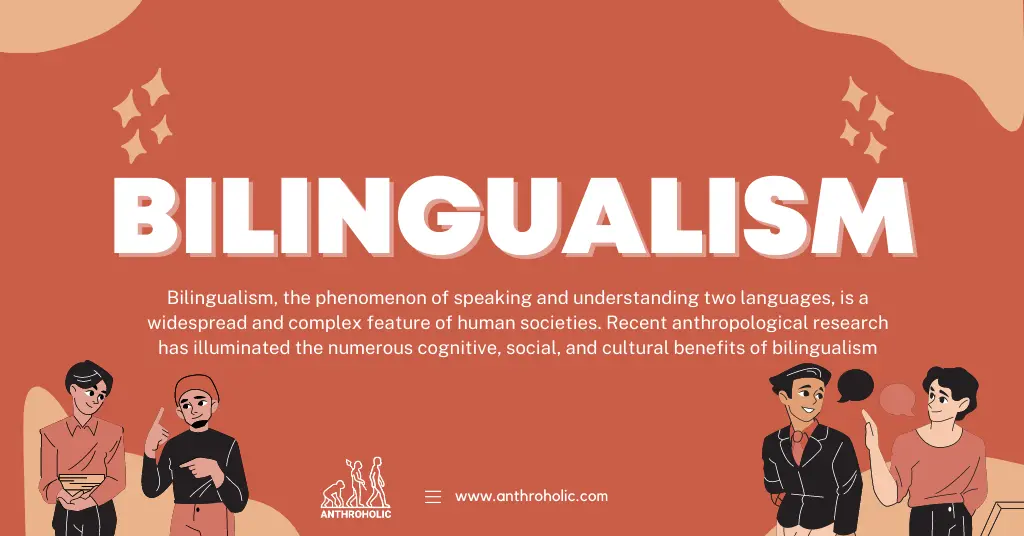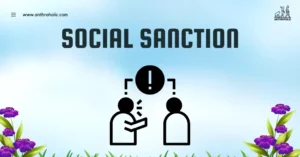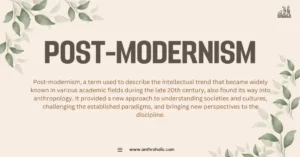AI Answer Evaluation Platform Live Now. Try Free Answer Evaluation Now
Bilingualism
Bilingualism, the phenomenon of speaking and understanding two languages, is a widespread and complex feature of human societies. Recent anthropological research has illuminated the numerous cognitive, social, and cultural benefits of bilingualism [1].

Definition of Bilingualism
Traditionally, bilingualism is defined as the ability to use two languages fluently and accurately. However, the anthropological perspective broadens this definition to include any individual who regularly uses two or more languages or dialects in their daily life [2].
The Prevalence of Bilingualism
Recent estimates indicate that more than half of the world’s population is bilingual to some degree. The table below shows the proportion of bilingual speakers in some of the world’s most populous countries:
| Country | Estimated Bilingual Population (%) |
|---|---|
| India | 41 |
| China | 53 |
| United States | 20 |
| Brazil | 5 |
| Russia | 27 |
(Source: Bilingualism in the World Population, 2023)
Bilingualism and Cultural Identity
Bilingual individuals often maintain strong cultural ties to both language communities. Speaking multiple languages allows them to participate in diverse social networks, enhancing their understanding of multiple cultures and their capacity for empathy. This cultural fluidity can also challenge traditional notions of cultural identity, leading to a more nuanced understanding of self and others [3].
Cognitive Benefits of Bilingualism
Research has indicated a wide array of cognitive benefits for bilingual individuals, including:
- Enhanced executive function: Bilinguals demonstrate better attention control, problem-solving, and multitasking skills [4].
- Improved memory: Bilingualism has been shown to enhance both working and long-term memory capabilities.
- Delayed onset of dementia: Bilingual individuals may experience a delay in the onset of dementia symptoms compared to monolinguals.
Linguistic Anthropology and Bilingualism
Linguistic anthropology, a sub-discipline of anthropology, examines the relationship between language and culture. This perspective has revealed new insights into the social dynamics of bilingual communities:
- Code-switching: This refers to the practice of alternating between two or more languages or language varieties in a single conversation. Code-switching often serves essential social functions, such as signaling group identity or status.
- Language dominance: Within bilingual communities, one language often gains prestige and dominance, influencing the cultural, economic, and political life of the community.
- Language shift and loss: In some situations, bilingual communities may undergo a language shift, leading to the gradual loss of one language. This is often due to factors such as migration, globalization, and language policies.
Bilingualism and Education
The education system plays a pivotal role in fostering bilingualism. Bilingual education refers to an education system that promotes the use of two or more languages. This system can take several forms, including:
- Transitional Bilingual Education: This approach uses a student’s native language and English in the classroom, with the aim of transitioning to English-only instruction over time.
- Dual Language Education: In this program, instruction is provided in two languages, with the goal of promoting proficiency in both languages.
- Immersion Education: This approach immerses students in a second language to promote full language acquisition. French immersion in Canada is an excellent example of this model.
Research has shown that well-implemented bilingual education programs can enhance students’ academic achievement and cross-cultural understanding. Furthermore, these programs can play a significant role in language preservation, particularly for indigenous languages at risk of extinction.
Social Impact of Bilingualism
Bilingualism also has notable social implications:
- Integration: Bilingualism aids in the integration of migrants, allowing them to maintain their native language while learning the language of their new country. This bilingual capacity enhances their ability to adapt to new social environments.
- Economic opportunities: Bilingual individuals often have expanded job opportunities. The ability to communicate in multiple languages is a highly valued skill in many sectors, including business, education, and diplomacy.
- Preservation of cultural heritage: Bilingualism enables individuals to maintain their cultural heritage and pass it on to future generations. Language is deeply tied to cultural identity, and bilingualism can strengthen this connection.
The Role of Anthropology in Understanding Bilingualism
Anthropology, with its holistic and cross-cultural approach, plays a vital role in understanding bilingualism’s cultural and social implications. This perspective can help unravel the complex interplay between bilingualism, cultural identity, and social structures. It also contributes to the creation of more inclusive and effective language policies and educational practices.
The Future of Bilingualism
Bilingualism is likely to become more prevalent in the future, given the increasing global mobility and the growing recognition of the benefits of bilingual education. Anthropologists will continue to play a crucial role in documenting and analyzing the social and cultural dynamics of bilingual communities.
References
[1] Genesee, F., & Gándara, P. (2022). Bilingualism and Education. Cambridge University Press.
[2] Romaine, S. (2020). Language in Society: An Introduction to Sociolinguistics. Oxford University Press.
[3] Piller, I. (2022). Linguistic Diversity and Social Justice. Oxford University Press.
[4] Bialystok, E., & Viswanathan, M. (2022). Bilingualism and Executive Functioning. Journal of Cognitive Psychology.




